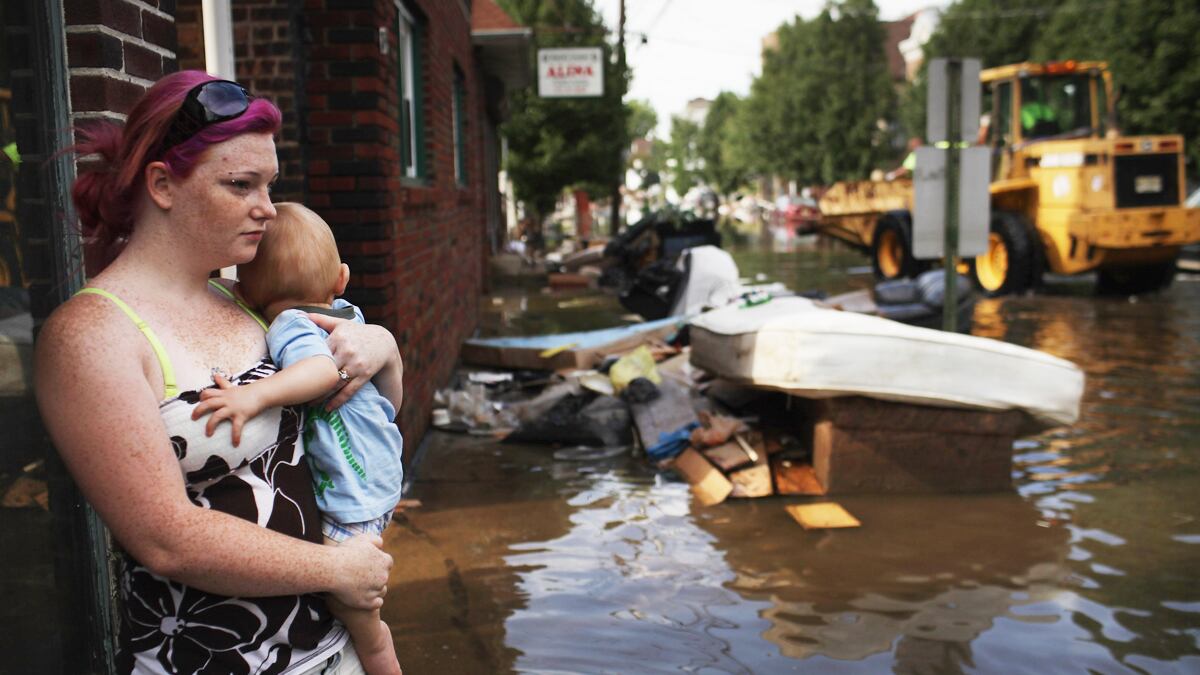The litany of large-scale disasters in 2011 is breathtaking. From the earthquake, tsunami, and nuclear catastrophe in Japan in March and the killer tornadoes hitting the U.S. South in April and May, to the earthquake, coastal storm, and extraordinary flooding over the past few weeks, this will be a year to remember. We have been dramatically reminded that, with and without warning, terrible disasters take lives and destroy communities.
Still, difficult as it is to imagine, Rep. Ron Paul (R-TX) determined that in the immediate aftermath of a killer storm that continues to devastate communities up and down the East Coast of the United States, it would be opportune to suggest eliminating FEMA, the Federal Emergency Management Agency, one of the nation’s most needed and most effective assets. Let’s just chalk that up to a momentary lapse by a single member of Congress in the heat of a television interview.
Far more concerning has been an extraordinary five-year erosion of funding for almost every important disaster response program across the two federal Cabinet level departments that have principal responsibility for improving the nation’s capacity to plan for, respond to, and recover from disasters. To be specific, in the final 2011 federal budget, preparedness and response funding within the Department of Homeland Security, which contains FEMA, and the Department of Health and Human Services dropped nearly $900 million, approximately 17 percent, compared to the previous year.
Funding for hospital disaster preparedness programs, alone, has dropped approximately 35 percent over the past five years. Even larger cuts have been made to school preparedness programs, regional planning for catastrophic disasters, emergency operations centers, and disaster response training programs for public health agencies. Other than funds available for testing new antidotes and vaccines, essential disaster research dollars have dried up. On state and local levels, these are devastating, to-the-bone cuts that erode the basic capacity of communities to fulfill their basic responsibilities when disaster strikes.

While acknowledging the seriousness and long-term implications of our current fiscal crisis, we cannot let our guard down in making sure we are as prepared as we need to be for major disasters. It is a certainty that the future holds more severe weather and geological events, the looming potential of lethal pandemics, and the possibility of further acts of extreme terrorism.
To add to our national delinquency in disaster planning, a major federal initiative called the National Recovery Framework was due to be finalized and released more than a year ago. It remains tied up in the federal bureaucracy, even though it is desperately needed by a nation still recovering from Hurricane Katrina in 2005 and now facing daunting recovery challenges in the wake of Hurricane Irene.
The wholesale evisceration of U.S. disaster response capacity is particularly ironic as we approach the 10-year anniversary of the Sept. 11, 2001, terror attacks. Now is when we should be pausing to remember the victims of that horrendous day and to assess how much progress we’ve made in keeping the country safe. Have we fixed the critical communication lapses among responder agencies that cost the lives of scores of firefighters on 9/11? Are our nation’s hospitals prepared to surge sufficiently in the event of a deadly global pandemic? Have we supported the research needed to improve resiliency and reduce the vulnerability of populations? Has there been sufficient improvement in our ability to respond to major disasters of any cause? Unfortunately, the answers are no, no, no, and no.
The bottom line is that federal funding for critical disaster preparedness programs has been dangerously eroded with consequences that greatly affect response capacity in every state and community in the nation.
Last week President Obama declared September 2011 to be National Preparedness Month. Clearly, emergency responders appreciate the presidential recognition of what’s at stake in terms of our need to be resilient and capable. A far better idea, though, is to make sure that critical funding for disaster response and recovery programs is available to beef up national and local capacity, train responders, and support planning that will save lives.






